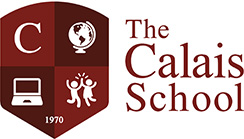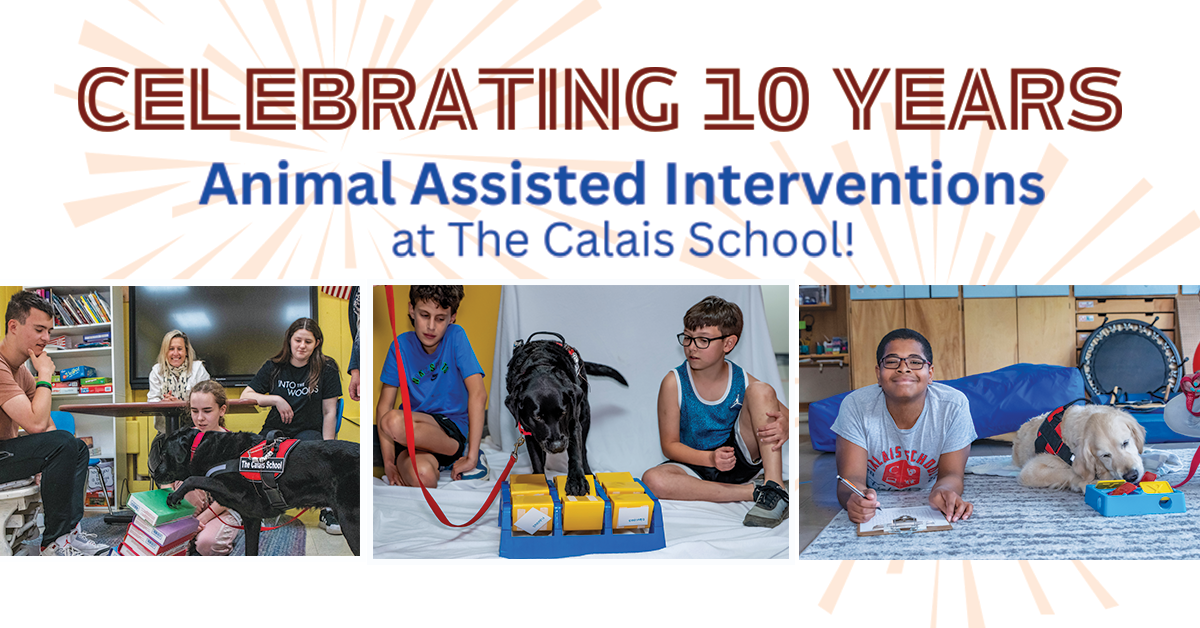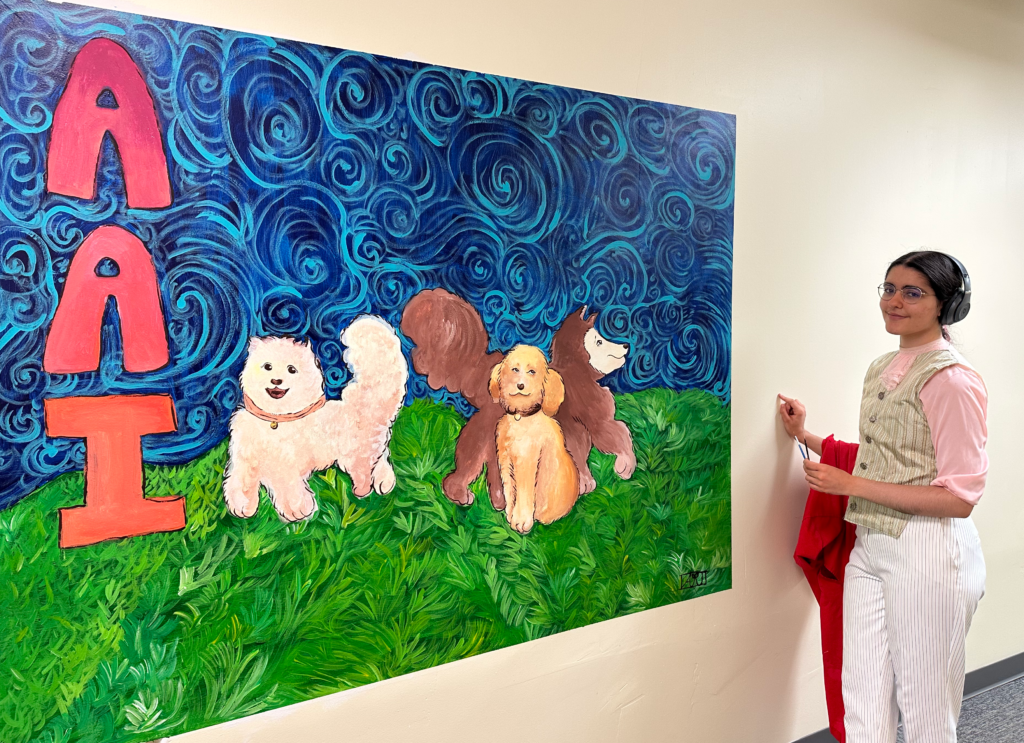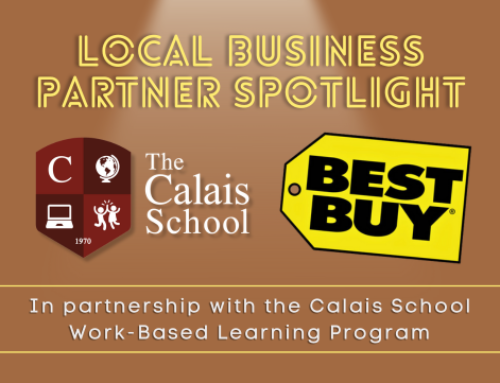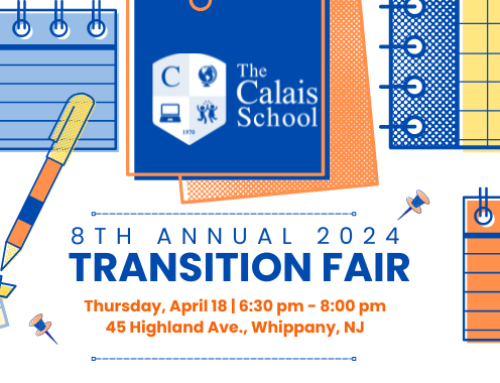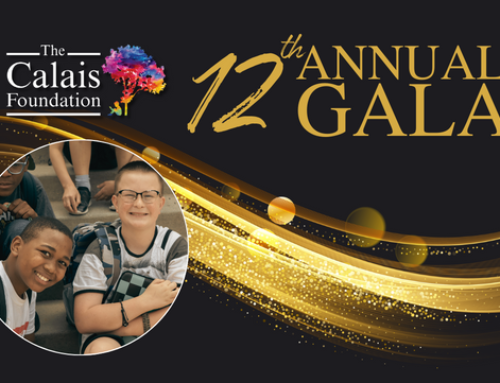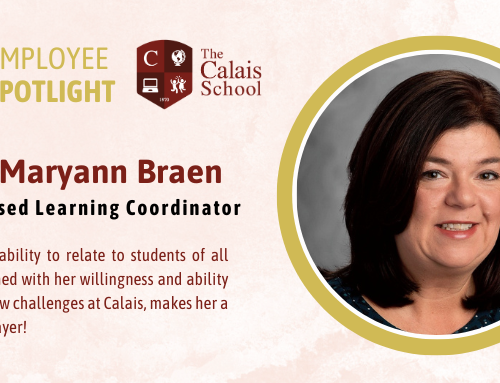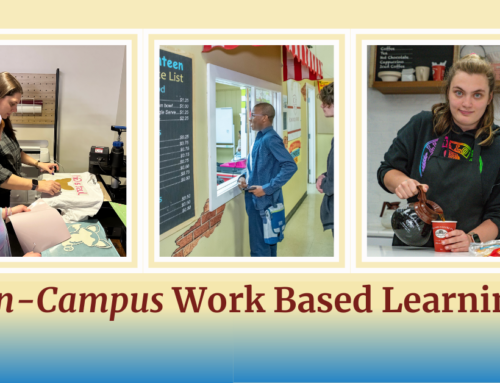How AAI Began
It started with only a few volunteer therapy dog handlers from St. Hubert’s Animal Shelter and their dogs who visited The Calais School to work with students a few days a week. Though these visits brought much joy to the halls of Calais, the students needed something more structured and consistent to maximize the benefits offered by therapy dogs.
In late 2012, the School’s first formal introduction to service dogs in a classroom took place when a Calais kindergartner required a personal service dog as accommodation in an IEP. This singular experience was so successful that it led to further exploration into the benefits of an Animal Assisted Therapy program integrated with the school’s Counseling program.
By 2013, the Calais School’s Animal Assisted Interventions Program for children with disabilities was launched with a goal of setting industry standards for incorporating Animal Assisted Interventions (AAI) into a school environment. Calais’ first AAI team of therapy dogs – Cali, Sage, and Cleo and their handlers Ms. Roerden and Ms. Ferment – were highly trained to help students with disabilities achieve their therapeutic and academic goals in a safe and secure environment.
As the program developed, it proved not only to boost student motivation, enhance communication and peer relations, but showed a noticeable decrease in anxiety among students. The therapy dogs also helped students struggling with school phobia to overcome their fears and school attendance improved as a result.
AAI Today
Fast forward to 2023. The Calais School is now one of a select group of schools in New Jersey and nationwide to offer a robust and effective Animal Assisted Interventions (AAI) Program. In 2022, the Calais School AAI Program received the prestigious “2022 Innovations in Special Education Award” by the New Jersey School Boards Association for its pioneering work with therapy dogs. The program has expanded to integrate trained therapy dogs into occupational therapy, physical therapy, reading remediation, speech/language therapy, social skill building, crisis response, as well as, group and individual sessions for counseling.
“The positive impact on students is clear in every single AAI session.” says Calais Executive Director, John Cohrs, “Calais is pleased to be working in partnership with other industry experts to help develop best practice and increase the breadth and depth of the advantage AAI has for our nation’s children while at school.”
Most recently, The Calais School is partnering with The College of New Jersey to develop and improve on the reporting and analytical side of the AAI program. Through this partnership, Calais students, parents and staff were asked to provide feedback on their firsthand experiences with the AAI program. The data collected from this group will be useful in guiding future AAI strategies.
Celebrating The Calais Way
Calais staff and students alike are very proud of the Calais AAI program and have been taking part in several celebratory schoolwide activities to mark this special 10th Anniversary. In late April, to coincide with National Animal Therapy Day on April 30th, the Calais community got to meet and learn a little more about the amazing AAI dogs with a special social media campaign. In addition, students decorated the school’s walls with drawings and words which reflect why they love having AAI dogs at Calais. More AAI activities are planned at the school throughout the remainder of the year.
Looking Forward to the Next Decade
Leveraging their ten years’ experience, The Calais School will continue to work toward innovative ways to help other schools develop and implement AAI into their curricular programs the Calais way. Calais looks forward to the next decade of AAI progress and the profound effect animal/human interaction will have on students, helping them achieve greater social and academic success and exceeding all that is possible.
 973-884-2030
973-884-2030 